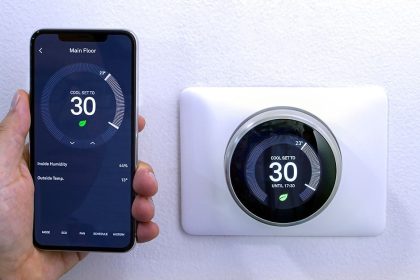Meta Description: How is artificial intelligence changing healthcare? Find out in this article how AI is being used to revolutionize healthcare and improve patient outcomes.
When you think of artificial intelligence (AI), the first thing that comes to mind may be self-driving cars or robotic pets, but AI has long been used in healthcare as well. With modern advances in computer science and deep learning algorithms, AI has made significant strides in healthcare over the last few years.
A recent study by McKinsey Global Institute estimates that the use of artificial intelligence in healthcare has the potential to create $150 billion in annual savings in the United States alone. This is just one example of how AI is transforming healthcare.
Read on to learn more about X ways artificial intelligence has revolutionized healthcare today and what might be coming next.
1. Early diagnosis of diseases
The ability to diagnose diseases earlier than ever before has led to better patient outcomes and improved quality of life for millions of people around the globe.
Early diagnosis is often the key to the successful treatment and management of many diseases. And AI-enabled diagnostic tools can detect diseases in their earliest stages when they’re most treatable. This is especially beneficial for conditions like cancer, which are often more difficult to treat when they’re caught in later stages.
2. Faster drug development
One of the most important benefits of artificial intelligence in healthcare is providing faster drug development. In the past, developing a new drug could take up to 15 years. However, with the help of AI, that time frame has been cut down to just a few years.
For one, AI can help identify which molecules are most likely to be effective against a certain disease. It can also help design and test new drugs much faster than before. With AI-assisted drug development, we can expect even more breakthrough treatments for diseases in the future.
3. More efficient and personalized treatment
AI has been used to develop personalized treatment plans for patients. By taking into account a patient’s individual medical history and current health condition, AI can create a tailored plan that’s more likely to be effective.
In addition, AI-enabled systems can help track a patient’s progress over time and make suggestions for treatment based on their individual needs. This personalized approach to care means patients are more likely to receive the best possible care for their condition.
4. Reduced costs
When it comes to healthcare, one of the most important factors is cost. With the help of artificial intelligence, healthcare costs have been reduced significantly.
One of the ways AI has helped reduce healthcare costs is by automating tasks that were previously done manually. For example, AI can be used to automatically fill out insurance forms or to schedule appointments. This reduces the amount of time and money that healthcare providers have to spend on these tasks.
In addition, AI can be used to diagnose diseases earlier and more accurately. This helps save on treatment costs and prevents patients from having to undergo unnecessary procedures.
5. Increased access to healthcare
Artificial intelligence has helped revolutionize healthcare by providing increased access to healthcare. By automating simple tasks and processes, AI has freed up time for doctors and nurses so they can focus on more complex cases.
In addition, AI has made it possible for patients to be seen by a doctor from the comfort of their own homes via telemedicine. This increased access to healthcare has led to better health outcomes for patients and lower costs for healthcare providers.
Summary & Takeaways
It’s clear that AI is revolutionizing healthcare and has the potential to drastically improve patient outcomes. With this technology, doctors can make more informed and accurate diagnoses, which can lead to better treatment plans and improved patient care.
As AI technology continues to develop, we can only imagine the ways in which it’ll continue to transform healthcare for the better. Hence, it’s important to monitor the development of AI in healthcare to ensure that its applications are ethically sound and clinically effective.














